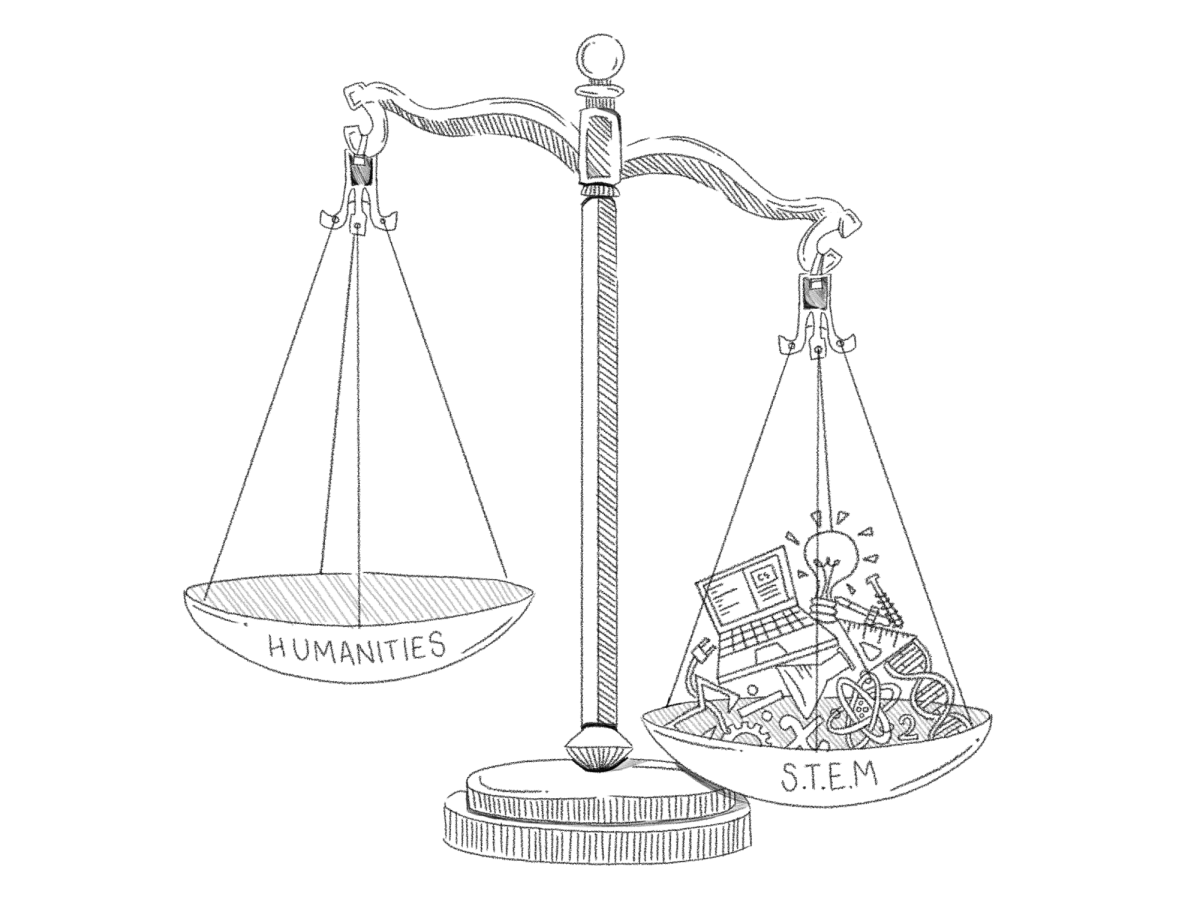Looking back on the assemblies of the previous year, I can barely remember any of them. What I do remember, however, are the complaints of my friends. “I could be doing homework right now.” “This is such a waste of time.” “The topic is interesting, but this guy is such a boring speaker.” For some reason, even though last year’s assemblies are a blur, I can remember a specific one from freshman year with surprising clarity. Shawn Achor’s speech on “The Happiness Advantage” was given during one of the first assemblies of my freshman year, and yet, two years later I still consider it the most interesting, entertaining, and enlightening assembly speech that we have had during my time at Menlo.
What was it that made “The Happiness Advantage” so much more popular with most of the student body (or at least my friends) than every other speech? Was it Achor’s engaging public speaking skills? Frequently I find myself glancing at the clock during assemblies, but I was enraptured during his entire speech. Maybe being a younger lecturer initially helped him connect with the audience more easily, but I think a lot of what made Achor so successful was his eager, lively, and funny way of spreading his ideas and message to us. The message itself also contributed to his success. The fact that it was totally different than the widespread view on how to achieve happiness made me want to keep listening to understand his tips better. I think that happiness is a clever topic to choose for a lecture because who doesn’t want to become happier? In our constantly busy and stressed Menlo bubble, many people could probably use an extra dose of happiness on a Monday night. Simply talking about how to be happy from a knowledgeable point of view is sure to make people listen.
Another big difference between “The Happiness Advantage” and other assemblies is that it got people talking afterwards. And by talking, I don’t mean complaining about the mountains of homework or social activities they could have been doing instead. I mean kids making excited, intellectual comments about different theories Achor explained and different experiments he mentioned. Everyone was especially excited to learn that being happier outside the classroom actually makes you perform better academically, which is the reverse of the stereotypical view that good grades and success are what drive happiness. I not only discussed this at length with my friends, but went home and shared the idea with my parents at the dinner table as well. Knowing that being happy socially would actually make me more successful academically, instead of taking away valuable isolated study time, definitely made me feel less guilty choosing to see friends over doing homework. I think that it takes a really out-of-the-box, innovative idea to create this kind of buzz in a community of people who are used to being exposed to creative ways of thinking and interesting theories in our day-to-day lives, and “The Happiness Advantage” is the only assembly that I feel has really driven a high level of student body discussion and analysis.
Menlo prides itself on being a place where learning is interactive and full of new ideas, yet usually our assemblies don’t really embody those educational principles at all. Considering how busy and stressed Menlo students are, it is important that we should use our time to the maximum efficiency. If students are bored during assembly and are tuned out the whole time or mentally reciting vocabulary words in their heads, we might as well be out on the quad relaxing or meeting with teachers during M-Block. I love the thought of assemblies bringing new ideas and perspectives from fascinating people to Menlo, but I think the quality of these assemblies must be consistently much higher if they are worth continuing at all.








